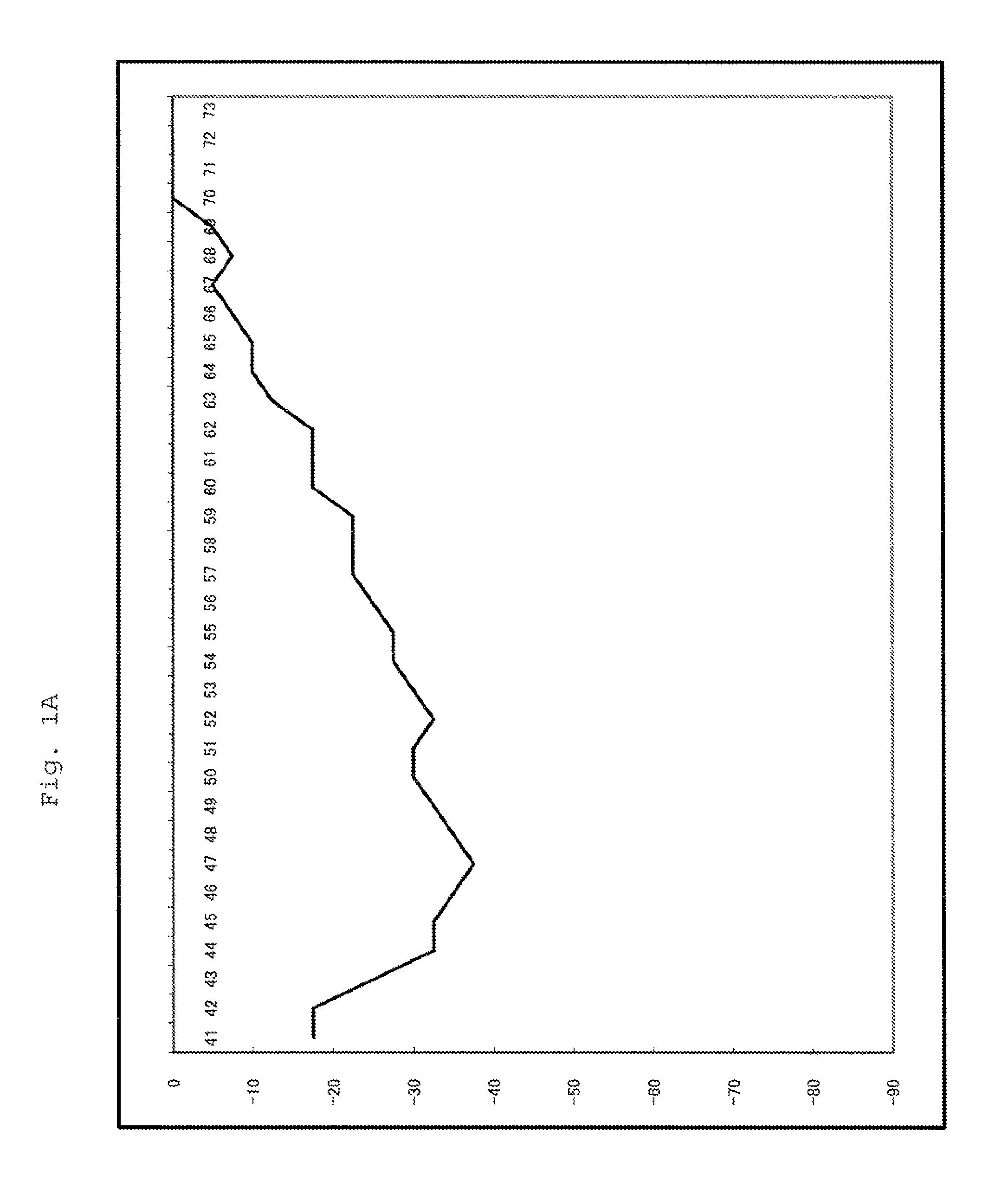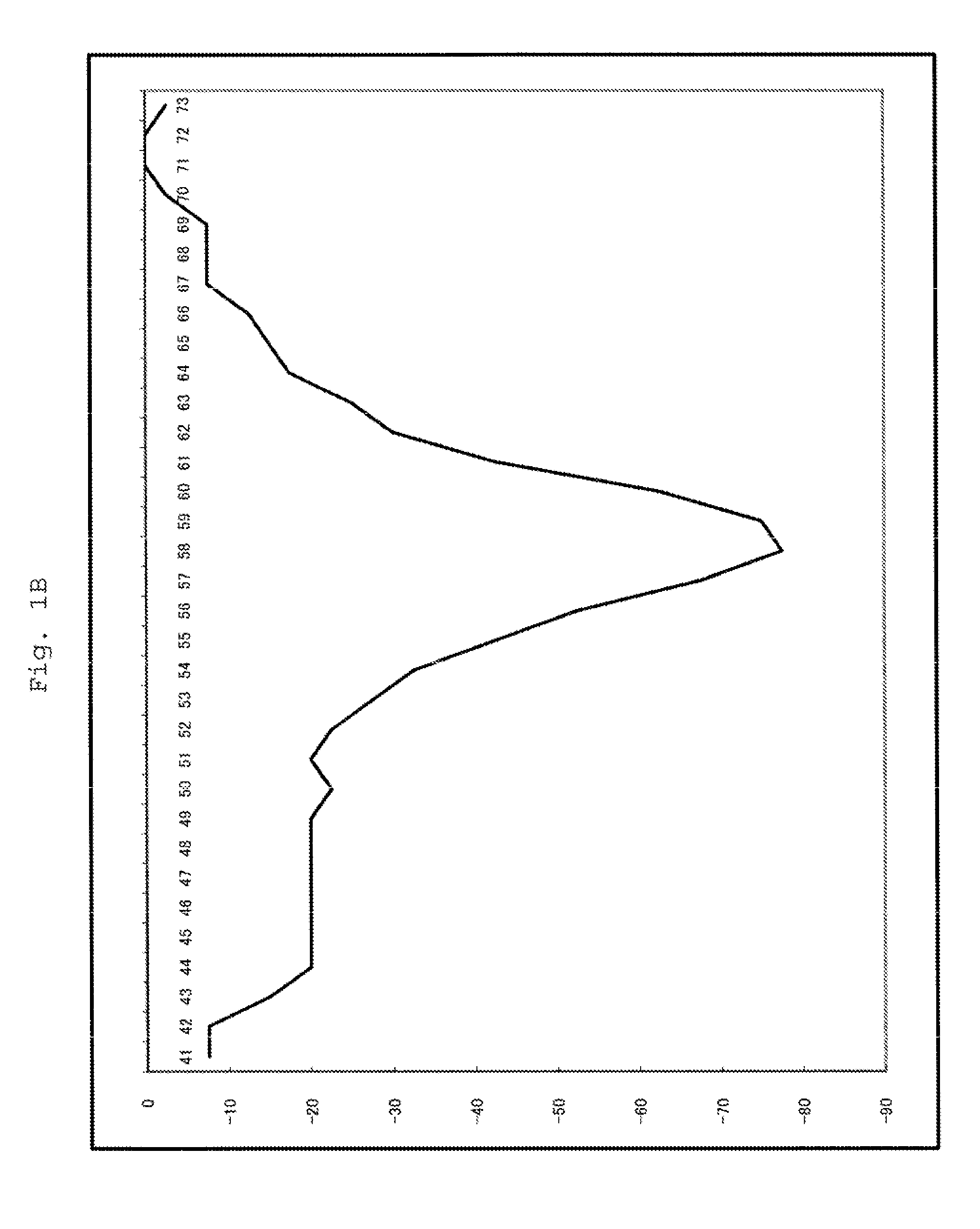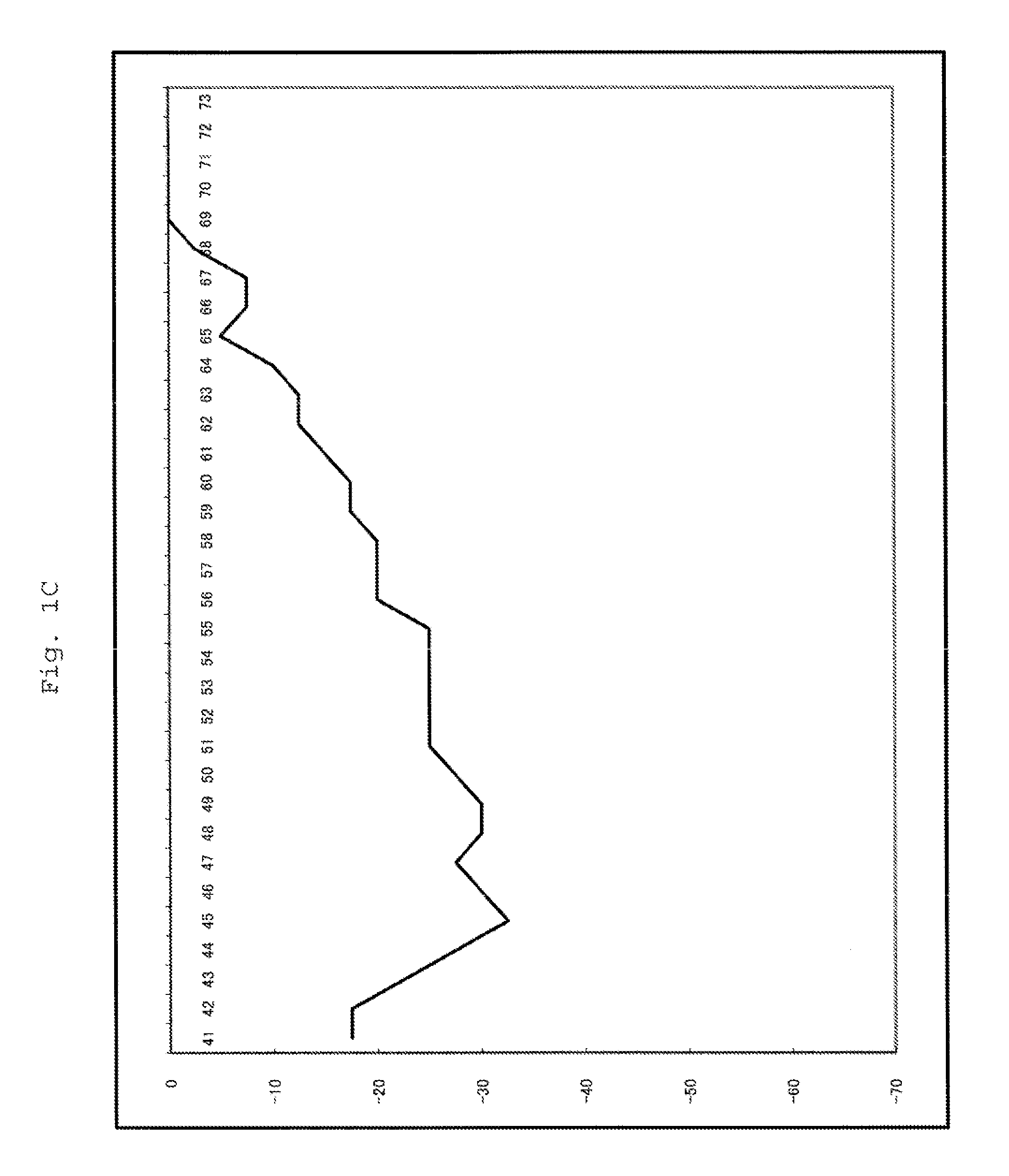Method and kit for amplifying and detecting polynucleotide
a polynucleotide and kit technology, applied in the field of methods and kits for amplifying polynucleotides and detecting amplified polynucleotides, can solve the problems of inability to achieve the degradation of uracil n-glycosylase in the ung method, contamination cannot be prevented, and the number of polymerases with reverse transcriptional activity is limited, so as to achieve the effect of preventing the degradation of the synthesized poly
- Summary
- Abstract
- Description
- Claims
- Application Information
AI Technical Summary
Benefits of technology
Problems solved by technology
Method used
Image
Examples
example 1
Case of Detecting NAT2 Gene
[0088]So as to make it possible to amplify a 640 bp site containing NAT2*5 which is an N-acetyltransferase 2 (NAT2) gene, primers and a probe shown in Table 1 were used. Such primers and a probe are described in WO 2008 / 066161.
[0089]
TABLE 1SEQ ID:namesequence (5′→ 3′)merNOProbegccgtcagtggtcac-152(BODIPY FL)Forwardtccagttaacaaatacagcact293PrimerggcatggReversetgataattagtgagttgggtga364Primertacatacacaaggg
[0090]For a 25 μl reaction solution, which contained 103 copies of purified human genome, and wherein components had been mixed so as to attain the concentrations of Table 2 below, PCR and Tm analysis were performed using SMART CYCLER (manufactured by Takara Bio Inc.). The conditions of PCR and Tm analysis are as shown in Table 3 below. In Tm analysis, Optics was set to Ch1.
[0091]The substrates (*1) were dNTPmix or dAUGCmix. With regard to dAUGCmix, only dUTP had a final concentration of 600 nM. The composition of dNTPmix was dATP, dCTP, dGTP and dTTP, and th...
example 2
Case of Detecting RNA (SWlnfH1 Region)
[0097]So as to make it possible to amplify an SWlnfH1 region, primers and a probe shown in Table 4 were used. Such primers and a probe were produced with reference to the sequences described in a protocol for amplifying influenza virus issued by the World Health Organization (CDC realtime RT-PCR protocol for influenza A (H1N1), 28 Apr. 2009).
[0098]
TABLE 4SEQnamesequence (5′→ 3′)merID: NOProbeCAGAATATACATCCRGTCAC-205(BODIPY FL)ForwardGTGCTATAAACACCAGCCTYCCA236PrimerReverseCGGGATATTCCTTAATCCTGTRGC247PrimerR represents A or G.R represents A or G. Y represents C or T.
[0099]For a 25 μl reaction solution, which contained 104 copies of RNA (an SWlnfH1 region), and wherein components had been mixed so as to attain the concentrations of Table 5 below, RT-PCR and Tm analysis were performed using SMART CYCLER (manufactured by Takara Bio Inc.). The conditions of PCR and Tm analysis are as shown below. In Tm analysis, Optics was set to Ch1.
[0100]The enzyme (...
example 3
Case of Detecting CYP2D6 Gene
[0105]So as to make it possible to amplify a 5.1 kbp site containing a CYP2D6 gene, primers and a probe shown in Table 7 were used. Such primers and a probe are described in Clinical Chemistry 46, No. 8, 2000, p.p. 1072-1077; and JP4,437,207B.
[0106]
TABLE 7SEQID:namesequence (5′→ 3′)merNOProbe(BODIPY FL)-cacgctacccacca18 8ggcc-PForwardgttatcccagaaggctttgcaggcttca28 9PrimerReversegccgactgagccctgggaggtaggta2610PrimerP at the 3′ end indicates that the end is phosphorylated.
[0107]For a 25 μl reaction solution, which contained 4.8×103 copies of purified human genome, and wherein components had been mixed so as to attain the concentrations of Table 8 below, PCR and Tm analysis were performed using SMART CYCLER (manufactured by Takara Bio Inc.). The conditions of PCR and Tm analysis are as shown in Table 9 below. In Tm analysis, Optics was set to Ch1.
[0108]The substrates (*1) were dAUGCmix. With regard to dAUGCmix, only dUTP had a final concentration of 600 nM. ...
PUM
| Property | Measurement | Unit |
|---|---|---|
| melting curve analysis | aaaaa | aaaaa |
| nucleotide length | aaaaa | aaaaa |
| size | aaaaa | aaaaa |
Abstract
Description
Claims
Application Information
 Login to View More
Login to View More - R&D
- Intellectual Property
- Life Sciences
- Materials
- Tech Scout
- Unparalleled Data Quality
- Higher Quality Content
- 60% Fewer Hallucinations
Browse by: Latest US Patents, China's latest patents, Technical Efficacy Thesaurus, Application Domain, Technology Topic, Popular Technical Reports.
© 2025 PatSnap. All rights reserved.Legal|Privacy policy|Modern Slavery Act Transparency Statement|Sitemap|About US| Contact US: help@patsnap.com



